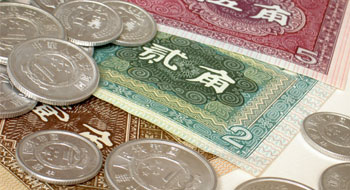
Originally from our sister publication, Advisor.ca.
Nearly two centuries ago, China was the largest economy in the world, accounting for a third of global output. Today, the world’s oldest civilization, and the fastest growing economy, seems determined to regain its lost glory and assert its economic supremacy on world stage.
It is the most incredible growth story that the world has ever experienced, said Princeton University economist Burton Malkiel, speaking at the annual Investment Management Consultants Association (IMCA) 2012, in National Harbor, Maryland.
“Nowhere in history have we seen a county grow this fast,” he said. “[However,] the question most people are asking is if it is going to continue.”
Malkiel says it will continue to grow and for several reasons, the most important of which is the polarized nature of its growth.
“While the eastern part of China is very well developed, the centre and the west of the country are essentially undeveloped [where] there is a lot of unrest,” he said. “Part of the strategy for the [ruling] party is ‘we want to stay in the power and we are not going to do that unless we start the growth in the [poorer parts] of the country’ where there are probably 500 million unemployed or underemployed Chinese who would like to experience the riches produced in the east.”
Unlike Europe, Japan and the U.S., China has a very strong balance sheet, he argued. “They have $3.3 trillion plus of reserves, a 17% debt to GDP ratio, versus about 100% for the U.S., about 150% for Greece and about 200% for Japan.”
And unlike the U.S. where the savings rate has dipped to zero in recent years, China boasts a savings rate of 30% to 40%, while consumption, which is 70% of the GDP in the U.S., is only 33% in China.
“It’s not like the Chinese don’t like to consume; consumption in China is growing very rapidly and will continue to grow in the years ahead.”
Malkiel says China also has an edge in other areas such as monetary policy and their banks are in far better shape than those of Europe and the U.S.
“They have fiscal policy flexibility which we don’t have because we’re so overextended in the U.S.,” he said. “If there is a problem again, the Chinese have the flexibility to [introduce] another stimulus package whereas the U.S. and Europe are badly constrained.”
What makes Malkiel so convinced China is going to grow is that it has a culture that reveres education, its people are hardworking and entrepreneurial, they have a gambling instinct and their government lets that flourish.
Investing in China, however, is very complicated. There’s an alphabet soup of shares. There are so-called ‘A’ shares that trade in Shanghai and Shenzhen. These shares are largely unavailable to non-Chinese investors. But lots of companies are registered in Hong Kong and offer what’s called ‘H’ shares, which are available for international investors. Then there are stocks of those Chinese companies that are listed on the New York Stock Exchange, called ‘N’ shares and are available to international investors.
Why invest in China
Malkiel’s first consideration is the rapid economic growth in China which he says will continue. He also contends investors are underweight in Chinese equities, not to mention Chinese stocks took a severe beating in 2011.
“Chinese stocks are available at P/E multiples just about 10 or 11; they are really at international standards or below and because they grow so fast, the P/E growth ratios are extremely attractive.”
The currency play is no small factors either. “[Investors] make their money in Chinese yuan [which] is severely undervalued in currency markets.”
That it has been lumped with emerging markets is also why investors remain underexposed to China. “If you go to Shanghai or Beijing, they don’t look like emerging markets, but the IMF determines you are if your per capita income is low and because there are hundreds of millions of [Chinese] living below the poverty line.”

 Emerging markets: Not quite what you’d expect
Emerging markets: Not quite what you’d expect Portfolio managers bullish on China
Portfolio managers bullish on China China and India: Looking good
China and India: Looking good